An overview of the #EndSARS protest in Nigeria: Legal issues and matters arising
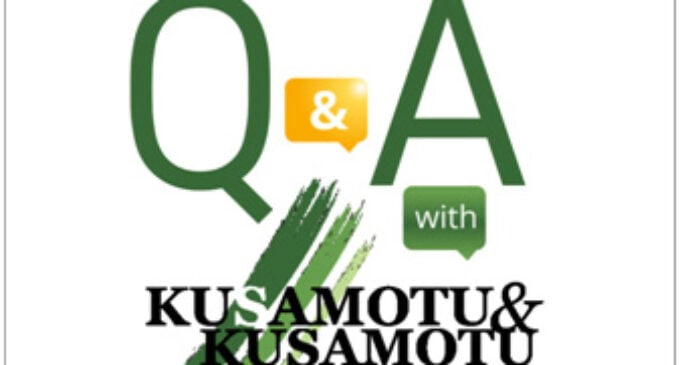
Special Anti-Robbery Squad, popularly known as SARS is a unit of the Nigerian Police Force charged with the primary function of performing undercover operations against crimes associated with armed robbery, car theft, kidnapping, and crimes associated with firearms. The Unit was established in 1992 and following its creation, the group has, on several occasions, been accused of a number of human rights violations which include:
- Illegal stop and search
- Illegal arrests and detentions
- Extrajudicial killings
- Sexual harassment of women
- Brutalising young Nigerians
Prior to October 2020 there had been agitations for the disbandment of SARS due to their unlawful activities. The grievances against SARS started as far back as 2015 when Amnesty International investigated their activities and discovered several cases of unlawful detainment, torture and other forms of brutality perpetrated by SARS. The allegations against them became incessant in subsequent years and each time Nigerians voiced out, the Federal government would give assurances as to one reform or the other but the allegations of brutality levelled against the unit continued to increase despite the said reforms. The Nigerian government had on three different occasions announced the rehabilitation and reform of SARS in 2017, 2018, and 2019 respectively, following a call for its total disbandment by citizens.
The most recent protest against SARS began on 8th October 2020after a video circulated on Social media showing a SARS officer shooting a young Nigerian in Delta State. This led to the nationwide protests and the many undesirable events that followed, including but not limited to the killings of innocent civilians and also law enforcement personnel as well as the attack on protesters by unknown gun men alleged to have appeared in Nigerian MilitaryUniformsat a major protest ground in Lekki, Lagos state Nigeria. A lot of concerned citizens have questions regarding the legality or otherwise of certain events that took place during the protest. This paper would provide answers to some of those questions.
1. What constitutes a peaceful protest?
A protest is a public expression of disapproval or dissent towards an idea or an action. Every citizen has a right to freedom of peaceful assembly and freedom of association or a voluntary group. As such, no restrictions should be placed on the exercise of this right except in the interest of national security or public safety so as to guard against public disorder or crime which mayinfringe on the freedom and rights of other citizens.
2. Are there any legal steps or procedures for staging peaceful protests and how long is a protest allowed by law to perpetuate?
In Nigeria, the major law that provides the procedure for staging a peaceful protest is the Public Order Act, CAP, 382 LFN, 2004. The Act in Section 1(3) makes it mandatory for individuals or groups to apply for and obtain police permit or approval to hold rallies and peaceful assemblies. However, in 2007, the said Section 1(3)was declared by the Court of Appeal as unconstitutional in the case of Inspector General of Police v. All Nigeria Peoples Party &Ors (2007) LPELR-8932(CA).
The law further stipulates that for the purpose of proper and peaceful conduct of public assemblies, meetings and processions, the Governors of each state are empowered to direct the conduct of all assemblies, meetings and processions on public road or places of public resort in their states and prescribe the route by which and the time at which any procession may pass.
On the legal duration of peaceful protest, it appears there is no specific period within which a protest may continue. The right to protest being a constitutional right may linger so long as the lawful demands of the protesters are not met or a dialogue is held between the protesters and the relevant authorities.
3. What are the domestic Legal frameworks on the right to protest?
The Public Order Act is the primary legislation regulating assemblies in Nigeria, it is designed for the purpose of proper and peaceful conduct of public assemblies, meetings and processions.
Section 1 of the Act states that the Governor of each State is empowered by the Act to direct the conduct of all assembly, meetings on Public roads or places of public resort and prescribe the route and times which the procession can pass, persons desirous of convening such must apply and obtain a license from the state Governor.
Section 40 of the Constitution and Article 11 of the African Charter on Human and Peoples Rights Act (Cap A90) of which Nigeria is a state party to are clear and unambiguous in its provision of the right to assemble freely and associate with other persons.
In 2007, The Court of Appeal quashed several sections of the Public Order Act though the Court’s decisions have yet to be reflected in legislative changes.
Notification is no longer required unless the organisers of the protest wish to receive police protection.
4. To what extent can the Right to protest be exercised by the protesters?
The right to protest by the protesters is protected by Section 40 of the Constitution of the Federal Republic of Nigeria 1999 which provides as follows: ‘Every person shall be entitled to assemble freely and associate with other persons, and in particular he may form or belong to any political party, trade union or any association for the protection of his interests’.
Since this Right is entrenched in our constitution, it follows therefore that it is binding on Government, Authorities and persons.
By virtue of the above section, the right to assemble is unfettered only while in the course of enjoying his right, other citizens’ right to enjoy that same right is not infringed.
5. What are the legal steps to be taken when a peaceful protest turns violent or hijacked by hoodlums?
Ordinarily, police officers are not allowed to use force against peaceful protesters. However, where peaceful protest turns violent or hijacked by hoodlums, the use of force by police officers is authorized under some circumstances. By virtue of the Reviewed Police Force Order, 237 on the use of Force and Fire Arms, 2019, the police officers are required to use only the force necessary to perform their duties and that such force must be proportional to the threat or resistance of the subject under the circumstances. The use of lethal measure is however a measure of last resort. Thus officers shall exhaust all other proportional means of apprehension or defence of his or herself or another, before resorting to the use of lethal force during violent protest.
6. What is the role of the Military during a protest and how can they intervene?
The primary role of the Nigerian Military is ingrained in the Constitution of the Federal Republic of Nigeria 1999 (as amended). Section 217 of the Constitution provides that the Armed Forces shall be responsible for;
- defending Nigeria from external aggression;
- maintaining its territorial integrity and securing its borders from violation on land, sea, or air;
- suppressing insurrection and acting in aid of civil authorities to restore order when called upon to do so by the President, but subject to such conditions as may be prescribed by an Act of the National Assembly; and
- Performance of such other functions as may be prescribed by an Act of the National Assembly.
From the above provision, the Military’s primary responsibility is to secure Nigeria from all forms of external attack and insurrection. Therefore, their duty does not extend to an interference with an otherwise peaceful protest by Nigerian citizens for the enforcement of their fundamental human rights. The army does not seem to have any business with civil protests unless there is an attempt to defeat the government through violent means. It is the duty of the Nigeria Police Force (NPF) and Nigeria Security and Civil Defence Corps (NSCDC) to monitor and maintain peace and order as provided in the relevant laws. See section 4 of the Police Act 2020, and Section 1 of the Nigeria Security and Civil Defence Corps (Amendment) Act 2007.
7. Can the protesters petition the ICCPR if their Right to a peaceful assembly is being violated?
Nigeria being a state party to the 1966 International Covenant on Civil and Political Rights (ICCPR), which is a human rights treaty providing a range of protections for civil and political rights. Article 21 of ICCPR governs the right to peaceful assembly providing that: The right of peaceful assembly shall be recognized, no restrictions may be placed on the exercise of this right other than those imposed in conformity with the Law and which are necessary in a democratic society in the interest of national security or public safety, the protection of public health or morals or the protection of the rights and freedom of others.
Nigeria however is NOT a state party to the first optional protocol to the ICCPR which allows individuals to petition the human rights committee if they believe that the state has violated the human rights as protected under the covenant.
Article 41 of the ICCPR provides a mechanism for state parties to complain about violations of the ICCPR made by another state and can petition other state parties where there is a breach of human rights.
8. Is violation of the right to peaceful protest a ground for legal action at international courts?
Yes, violation of right to peaceful protest is a ground for legal action in both local and international Courts. The Constitution, amongst other human rights laws provides for the right of citizens to assemble freely and associate with other persons. In addition to this, any person may form or belong to any political party, trade union or any other association for the protection of his/her interests. Violation of this right entitles the aggrieved party to seek legal redress at the High Court in the statewhere the infringement occurred in Nigeria (Sec. 46, CFRN). It should be noted that international Courts are not substitutes for national Courts as their jurisdiction becomes activated when a State is unable or unwilling genuinely to carry out the required investigation and prosecute violators.Nigeria is a state party to the Rome Statute which created the International Criminal Court (ICC) and also a member of ECOWAS and by implication under the jurisdiction of those Courts. The ICC has jurisdiction to try individuals for offences bordering on war crimes, crime against humanity, genocide and crime of aggression while ECOWAS court also has jurisdiction to determine cases of violation of human rights that occur in any member state upon being informed about the infringement.
9. Does the international community have the power to interfere with local protests?
The international community can interfere in human rights violation in member states. Once a Country has signed treaties with international communities, the country is bound by the provisions contained in the treaties. Nigeria is a member in a number of Human Rights Treaties signed at different times. The list of treaties include but not limited to the following; African Charter on Human and Peoples Rights, International Convention for the Suppression of the Financing of Terrorism, Rome Statute of the International Criminal Court, Freedom of Association and Protection of the Right to Organise Convention, Right to Organise and Collective Bargaining Convention, Convention against Torture and Other Cruel, Inhuman or Degrading Treatment or Punishment, and many others. For example, Article 46 of the ACHPR provides for when the African Commission on Human and Peoples’ Rights can intervene in matters of breach of the provision of the Charter by any of its member states. Similarly, Article 41 of the International Covenant on Civil and Political Rights empowers the Human Rights Committee of the United Nations to intervene in matters of human rights violations by state parties.
10. When can a civil protest be said to constitute a threat to National security?
A civil protest constitutes a threat to national security when there are elements of violence or crime in the course of protest. It should be noted that although Nigerian citizens have the right to peaceful assembly, that right is not absolute. Section 45 of the CFRN (as amended) is to the effect that notwithstanding the rights provided under section 37, 38, 39, 40, and 41 of the constitution, the Government is duty bound to uphold the interest of defence, public safety, public order, and protection of the rights and freedom of others. Section 45 supra provides thus;
Nothing in Sections 37, 38, 39 40 and 41 of this Constitution shall invalidate any law that is reasonably justifiable in a democratic society: – (a) In the interest of defence, public safety, public order, public morality or public health; or (b) For the purpose of protecting the rights and freedom of other person. In the case of Amarawa&Ors V. Registered Trustees of Association of Traders of Fruits Vegetables & other Related Products Kano (2019) Lpelr-48265(CA), the Court held that Section 40 of the 1999 Constitution of the FRN (as amended) does not permit the formation of Association or groups that will be at cross roads capable of creating anarchy and confusion. See also the case of Erasmus Osawe&Ors. V. Registrar of Trade Unions (1985) LPELR-2792 (SC) where the Supreme Court stated that the right to freedom of association provided in Section 37 of the Constitution supra (now Section 40) is made subject to its being in consonance with any law that is reasonably justifiable in a democratic society;(a) in the interest of defence, public safety, public order, public morality or public health or (b) for the purpose of protecting the rights and freedom of other person. It is clear that when a civil protest reinforces threats of violence, commission of crime, and threat to public safety, it becomes a threat to national security and must be aborted in order to ensure peace. In the same vein where a protest has no element of violence or crime in any form, the citizens should be allowed to exercise their right to express their grievances and enforce their rights.
Conclusion
This session provides useful information on the on-going End Sarsprotest in some cities of Nigeria from a legal point of view. It focused on providing opinion relating to the meaning of peaceful protest, the legal steps or procedures of staging a peaceful protest, the extent of the rights of protesters during peaceful protests, the domestic and international frameworks on the right to protest, the steps to be taken when protest turns violent or has been hijacked by hoodlums, involvement of military to repel protest, intervention by international community, national security and sovereignty. It is hoped that this information will assist the readers to a large extent against the several fallacies and misconceptions making the rounds.
Got more questions on the above subject matter? Send your enquiries to [email protected].
Kusamotu & Kusamotu
(The Greenfish Chambers)
2A, Udi Street, Osborne Foreshore Estate,
Ikoyi, Lagos State.
Email: [email protected], [email protected],[email protected], [email protected], and [email protected].
Website: www.kusamotu.com
Tel: +234 (0) 8147203068
Disclaimer:
Nothing in this Article should be construed as legal advice from any of our lawyers or the firm. The answers are a general summary of developments, principles, circulars and press releases of interest on the subject of discussion and may not apply directly to any specific circumstances. Professional advice should therefore be sought before any action is taken.



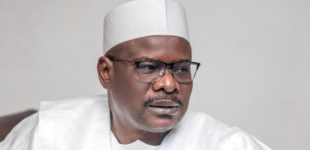
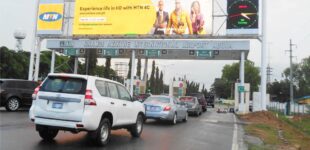
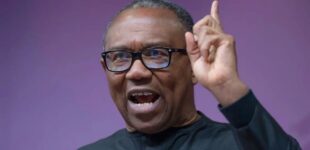

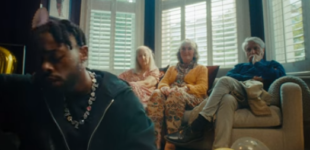




There are no comments at the moment, do you want to add one?
Write a comment